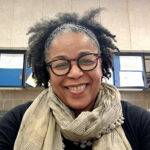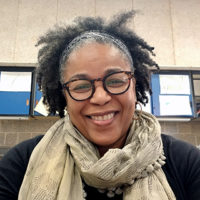Workshop Description
Using Digital Tools to Support Evidence-based Argumentation in STEM Teaching and Learning
In this digital world, we are bombarded with an almost infinite amount of data and information. The issue at hand is how we identify the evidence from the data to create and present in a format that supports evidenced-based scientific argumentation. Argumentation is considered to be an essential practice for R–12 science classrooms because it is a fundamental form of scientific literacy that supports the development of scientific thinking and learning. According to guided national science standards, it is important to develop students’ capacities to articulate their individual reasoning through the exploration of ideas and perspective of others, being able to distinguish and interpret information and data to reasonable evidence, and make appropriate justification to debate with their peers in argumentative practice.
Participants will engage in activities using digital tools to develop infographics, which are graphic visual representations of data and information. The creation of these visuals are powerful tools are attention-grabbing that seeks to develop visual data and analysis skills and to construct reasonable scientific explanations from observations and investigation of science phenomena.
Presenter Bio
Dr. Mahfood originates from Kingston, Jamaica and has always been curious about how the world works. Her teaching and professional experiences are strongly ingrained in the sciences and education, which spans over an 18-year period. She continued on a science track from her studies at the University of the West Indies in Trinidad, and New York University in NYC where she earned Master’s Degrees. After teaching in the NYC public schools for 8 years, she went on to do her doctoral studies at Teachers College, Columbia University. These experiences range in teaching science content in the areas of Physical, Life and Earth sciences and Mathematics, curriculum development, and science professional development for teachers.
Her educational philosophy seeks to enhance science curriculum and science teaching methods which involves developing engaging activities to motivate student learning by building confidence and exploring with them what they know, how they learn and the value of knowledge. This approach enables an understanding in specific contexts, encourages authentic questions and help support high skill levels, inquiry into social issues and creative thinking.
Inclusive of her formal teaching, Dr. Mahfood has participated in several after-school science/mathematics enrichment programs in chemistry, physics, robotics and engineering, statistics and data analysis at different schools and institutions such as the American Museum of Natural History and the School of Engineering at Columbia University.
Currently, she continues her work in STEM education by working with teachers and students in New York City and New Jersey doing professional development, and as a full-time lecturer in the Science Education Department teaching methods courses at Teachers College, Columbia University.

